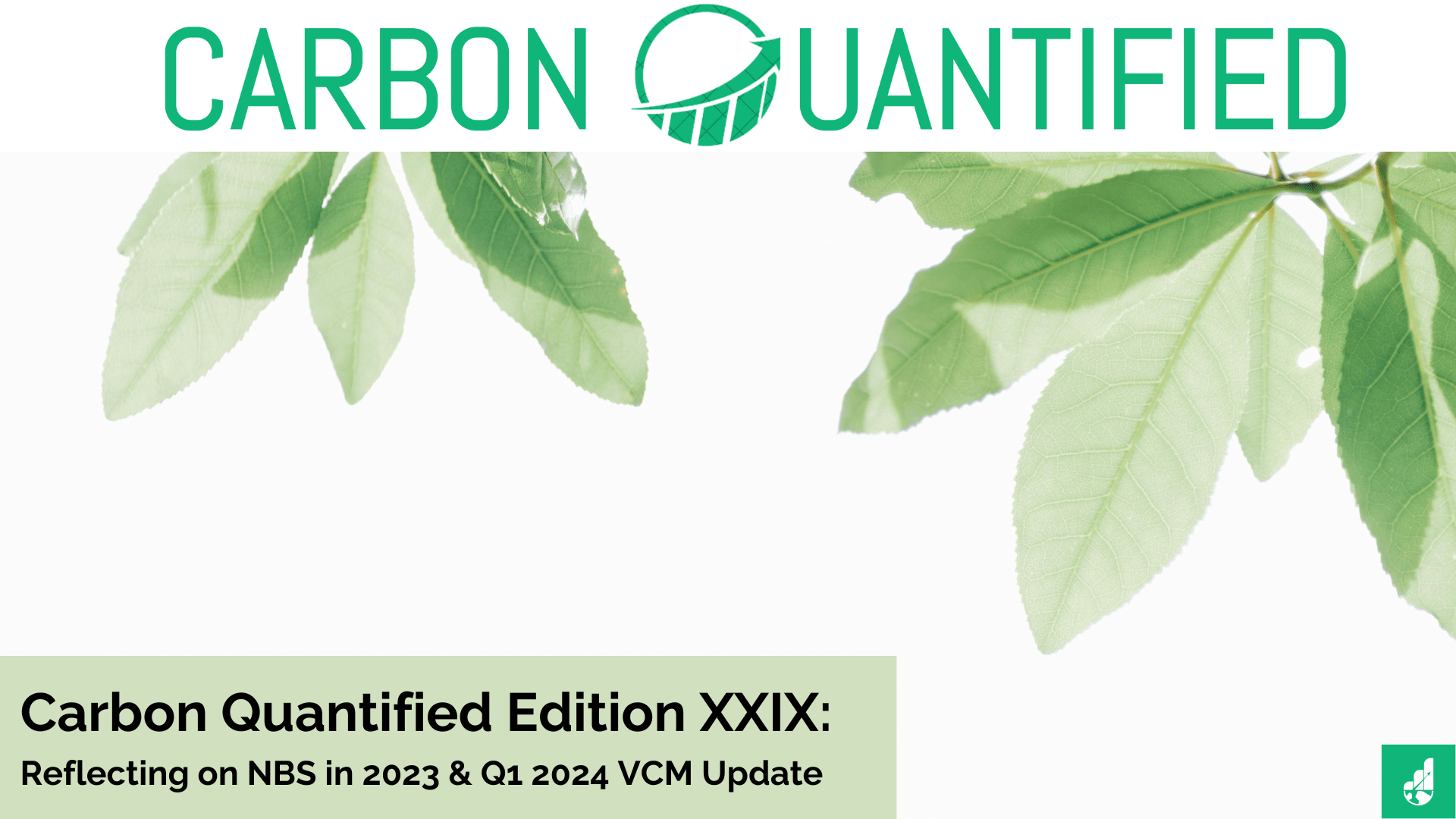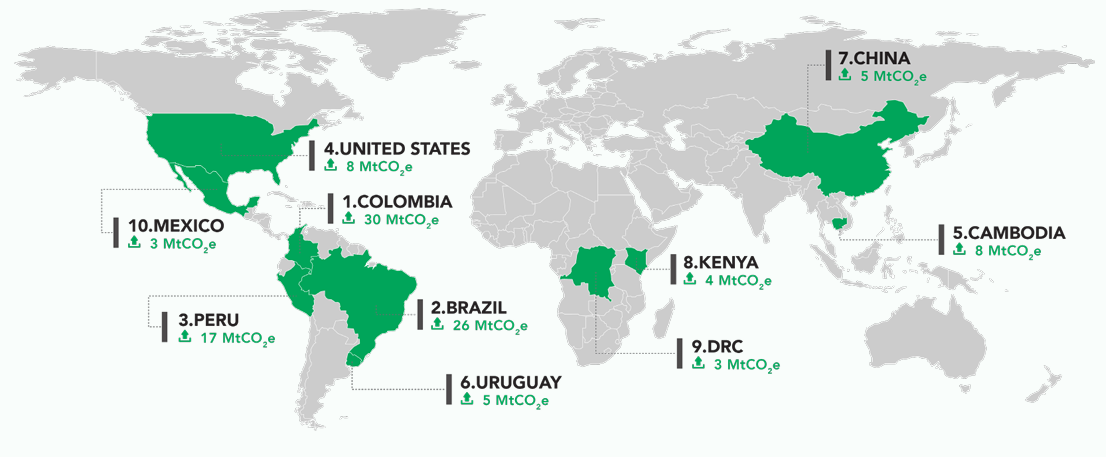Carbon Quantified Edition XXIX: Reflecting on NBS in 2023 & Q1 2024 VCM Update

Welcome to the latest edition of Carbon Quantified, your trusted source for navigating the ever-changing landscape of climate action and sustainability.
Overview of the Twenty-Ninth Edition:
In our first article, "Navigating Nature-Based Carbon Markets: Reflections on 2023," we reflect on the challenges encountered by the Voluntary Carbon Market (VCM) in 2023. Despite record issuance and high prices, criticism regarding integrity and transparency dampened achievements. Join us as we explore the concerns over project integrity, offsetting claims, and the market's role in the Paris Agreement's Article 6, which led to cautious buyer and investor behavior.
Next, in "Q1 2024 Voluntary Carbon Market Update: Oversupply Challenges Persist Despite Record Retirements," we delve into the significant developments shaping the VCM in the first quarter of 2024. Despite a historically large number of retirements, oversupply continues to balloon as issuances rise, putting downward pressure on prices. Explore the implications of these trends and the setbacks faced in Article 6 negotiations.
Announcement:
Join us for our upcoming Fireside Chat featuring Ruth DeFries, Professor of Sustainable Development at Columbia University. Explore "Regenerative Agriculture as a Way Forward to Climate Resilience and Food Security" with us on May 17th.
Stay informed as we continue to provide insights and perspectives on the latest trends and initiatives driving climate action and sustainability, empowering you to make informed decisions for a more sustainable future.


Q1 2024 Voluntary Carbon Market Update: Oversupply Challenges Persist Despite Record Retirements
The first quarter of 2024 saw significant developments in the Voluntary Carbon Market (VCM), with an increase in credit issuances outpacing retirements. This has led to a further inflation of oversupply, putting downward pressure on prices. Additionally, Article 6 negotiations faced setbacks, impacting the international trade of carbon credits. Here's an in-depth analysis of the key trends and developments in the VCM during Q1 2024.
Read the article


Navigating Nature-Based Carbon Markets: Reflections on 2023
In 2023, the Voluntary Carbon Market (VCM) encountered challenges despite record issuance and high prices. Criticism regarding integrity and transparency dampened achievements. Concerns over project integrity, offsetting claims, and the market's role in the Paris Agreement's Article 6 led to cautious buyer and investor behavior. Gloomy investor sentiment persisted due to global monetary policy tightening and increased capital costs.
Read More


Fireside Chat featuring Ruth DeFries on Regenerative Agriculture as a Way Forward to Climate Resilience and Food Security
Join us for our upcoming Fireside Chat featuring Ruth DeFries, Professor of Sustainable Development at Columbia University, alongside our CEO Neelesh Agrawal and Technical Head Deep Datta. Explore "Regenerative Agriculture as a Way Forward to Climate Resilience and Food Security" with us on May 17th, 8 AM EDT / 5:30 PM IST.
Register Here

Indian carbon credits not just for domestic use, will be allowed to be traded internationally
India will allow foreign buyers to purchase carbon credits generated in the country, the administrator of the national market told a webinar this week, seeking to clarify the government’s policy after market participants had expressed confusion about the eligibility of selling units abroad.
New Zealand pledges climate finance for Southeast Asia, looks at Article 6 tie with the Philippines
New Zealand has committed NZ$41 million ($25 mln) in climate finance to Southeast Asia via the Asian Development Bank’s (ADB) Energy Transition Mechanism (ETM), it said Friday, while entering into early talks with the Philippines over potential cooperation on Article 6.
Wind overtakes fossil fuels for UK electricity generation
Wind farms have been the primary source of electricity in the United Kingdom for the past two consecutive quarters, marking the longest stretch on record that renewable energy has surpassed fossil fuels in U.K. electricity generation.
95% of Apple’s Supply Chain Commits to 100% Renewable Energy Use by 2030
Apple announced significant progress towards its goal to decarbonize its value chain, including revealing that more than 320 suppliers – representing 95% of the company’s direct manufacturing spend – have now committed to use 100% renewable energy for Apple production by 2030, up from around 250 suppliers last year.
Share it with your peers on WhatsApp & Linkedin



